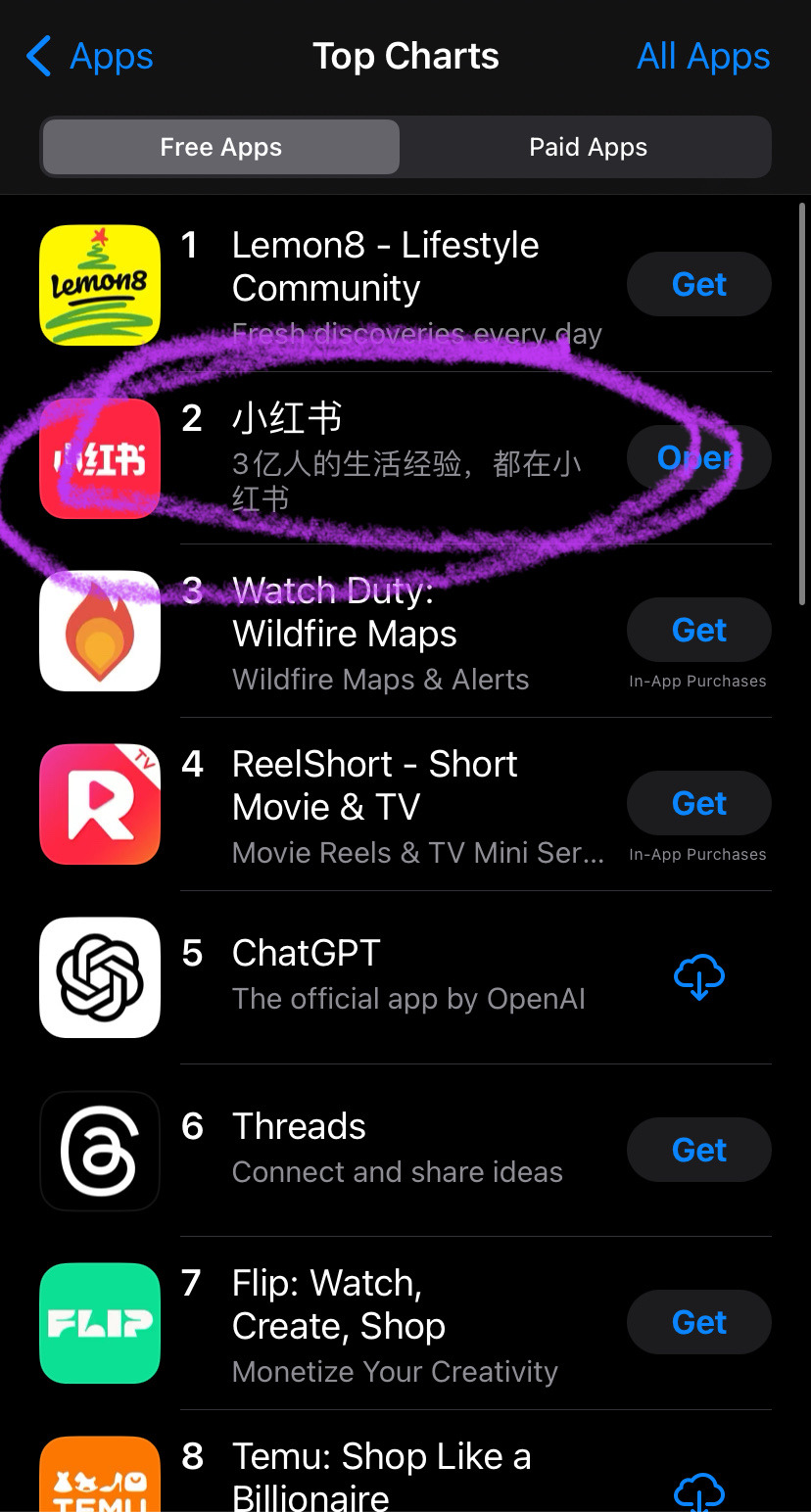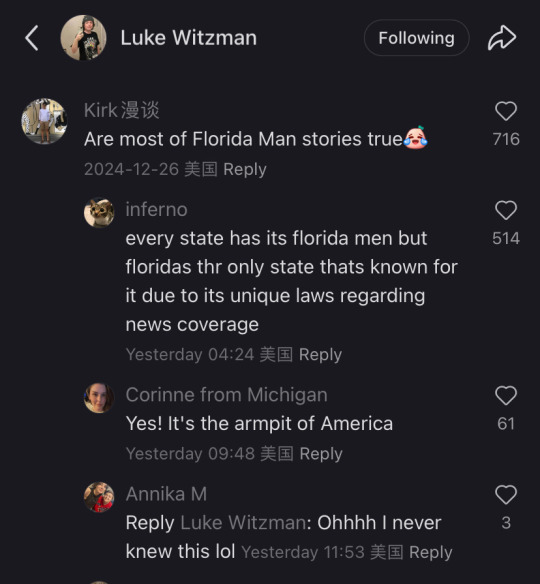#Government Data
Explore tagged Tumblr posts
Text
How Trump is reshaping reality by hiding data
Curating reality is an old political game, but Trump’s sweeping statistical purges are part of a broader attempt to reinvent “truth.”

Trump appears to be turning the federal government into its own 1984-style Ministry of Truth.

This is a gift 🎁 link so there is no paywall to read it. Below are some excerpts/highlights.
By Amanda Shendruk and Catherine Rampell | March 11, 2025 The Trump administration is deleting taxpayer-funded data — information that Americans use to make sense of the world. In its absence, the president can paint the world as he pleases. We don’t know the full universe of statistics that has gone missing, but the U.S. DOGE Service’s wrecking ball has already left behind a wasteland of 404 pages. All sorts of useful information has disappeared, including data on:

[...]

[See more under the cut.]
Three cases of legerdemath and other tricks up Trump’s sleeve
Deleting data isn’t the only way to manipulate official statistics. Trump and his allies have also misrepresented or altered data. Here are a few examples: 1. Incorrect data

Witness DOGE’s bogus statistics on its supposed government savings. The administration counts as “savings” some canceled contracts that had already been paid in full. Some canceled expenses were created out of whole cloth, such as $50 million supposedly spent on sending condoms to Gaza. 2. Misrepresented data

One of Trump’s favorite charts on immigration is riddled with errors. For one, it does not show the number of immigrants entering the United States illegally, as he claims, but the number of people stopped at the U.S. border. Similarly, when Commerce Secretary Howard Lutnick was recently asked how much DOGE funding cuts might reduce economic growth, he suggested that the agency might decide to change how economic growth is calculated so that the usual GDP report strips out government spending altogether. This would be an abrupt change to the standard GDP methodology that has been used around the world for nearly a century, but it would certainly make the DOGE cuts look less painful. 3. Altered data

When data doesn’t tell the story Trump wants, he fabricates it. In what became known as “Sharpiegate,” Trump notoriously altered a map of Hurricane Dorian’s path in 2019.


Likewise, before Jan. 30, a National Institutes of Health website documenting years of spending data included a category called “Workforce Diversity and Outreach.” That line item is now gone — even though the money was, indeed, spent.
Taking cues from authoritarian illusionists
Such actions are straight out of authoritarian leaders’ playbooks. Research suggests that less democratic countries have been more likely to inflate their GDP growth rates and manipulate their covid-19 numbers. Statistical manipulation is also more common in countries that shun economic openness and democracy. [...] To be clear, efforts to rewrite reality via statistical manipulation often don’t work. If anything, China’s data deletions reduced public confidence in the country’s economic stability. (No one hides good news, after all.) The Trump team’s efforts to suppress nettlesome numbers have similarly eroded trust in U.S. data. Only about one-third of Americans trust that most or all of the statistics Trump cites are “reliable and accurate.”

Meanwhile, missing or untrustworthy data lead to worse decisions: Auto companies, for example, draw on dozens of federally administered datasets when devising new car models, how to price them, where to stock and market them and other key choices. Retailers need detailed information about local demographics, weather and modes of transit when deciding where to locate stores. Doctors require up-to-date statistics about disease spread when diagnosing or treating patients. Families look at school test scores and local crime rates when deciding where to move. Politicians use census data when determining funding levels for important government programs.

And of course, voters need good data of all kinds when weighing whether to throw the bums out. Many of us take the existence of economic or public health stats for granted, without even thinking about who maintains them or what happens if they go away. Fortunately, some outside institutions have been saving and archiving endangered federal data. The Internet Archives’ Wayback Machine, for instance, crawls sites around the internet and has become an invaluable resource for seeing what federal websites used to contain. Other organizations are archiving topic-specific data and research, such as on the environment or reproductive health. These are critical but ultimately insufficient efforts. At best, they can preserve data already published. But they cannot update series already halted or purged.... Some private companies may step in to offer their own substitutes (on prices, for example), but private companies still rely on government statistics to calibrate their own numbers. Much of the most critical information about the state of our union can be collected only by the state itself. Americans might be stuck with whatever Trump chooses to share with us, or not.
#government data#donald trump#hiding government data#manipulating government data#manipulating the truth#autocracy#1984#ministry of truth#amanda shendruk#catherine rampell#michelle kondrich#sethinsua#the washington post#my edits
196 notes
·
View notes
Text
Library workers at American University in Washington, D.C. has created this LibGuide of trusted repositories that still hold now-deleted government data. The site also has links to advocacy groups and ways that regular people can help.
#censorship#libraries#librarians#library workers#American libraries#government data#Information Data Rescue#Centers for Disease Control#CDC#U.S. Census#Council on Environmental Quality#data archive#digital archives#LOCKSS as a principle: lots of copies keeps stuff safe#keep going
21 notes
·
View notes
Text
Nope now it’s at the point that i’m shocked that people off tt don’t know what’s going down. I have no reach but i’ll sum it up anyway.
SCOTUS is hearing on the constitutionality of the ban as tiktok and creators are arguing that it is a violation of our first amendment rights to free speech, freedom of the press and freedom to assemble.
SCOTUS: tiktok bad, big security concern because china bad!
Tiktok lawyers: if china is such a concern why are you singling us out? Why not SHEIN or temu which collect far more information and are less transparent with their users?
SCOTUS (out loud): well you see we don’t like how users are communicating with each other, it’s making them more anti-american and china could disseminate pro china propaganda (get it? They literally said they do not like how we Speak or how we Assemble. Independent journalists reach their audience on tt meaning they have Press they want to suppress)
Tiktok users: this is fucking bullshit i don’t want to lose this community what should we do? We don’t want to go to meta or x because they both lobbied congress to ban tiktok (free market capitalism amirite? Paying off your local congressmen to suppress the competition is totally what the free market is about) but nothing else is like TikTok
A few users: what about xiaohongshu? It’s the Chinese version of tiktok (not quite, douyin is the chinese tiktok but it’s primarily for younger users so xiaohongshu was chosen)
16 hours later:

Tiktok as a community has chosen to collectively migrate TO a chinese owned app that is purely in Chinese out of utter spite and contempt for meta/x and the gov that is backing them.
My fyp is a mix of “i would rather mail memes to my friends than ever return to instagram reels” and “i will xerox my data to xi jinping myself i do not care i share my ss# with 5 other people anyway” and “im just getting ready for my day with my chinese made coffee maker and my Chinese made blowdryer and my chinese made clothing and listening to a podcast on my chinese made phone and get in my car running on chinese manufactured microchips but logging into a chinese social media? Too much for our gov!” etc.
So the government was scared that tiktok was creating a sense of class consciousness and tried to kill it but by doing so they sent us all to xiaohongshu. And now? Oh it’s adorable seeing this gov-manufactured divide be crossed in such a way.







This is adorable and so not what they were expecting. Im sure they were expecting a reluctant return to reels and shorts to fill the void but tiktokers said fuck that, we will forge connections across the world. Who you tell me is my enemy i will make my friend. That’s pretty damn cool.
#tiktok ban#xiaohongshu#the great tiktok migration of 2025#us politics#us government#scotus#ftr tiktok is owned primarily by private investors and is not operated out of china#and all us data is stored on servers here in the us#tiktok also employs 7000 us employees to maintain the US side of operations#like they’re just lying to get us to shut up about genocide and corruption#so fuck it we’ll go spill all the tea to ears that wanna hear it cause this country is not what its cracked up to be#we been lied to and the rest of the world has been lied to#if scotus bans it tomorrow i can’t wait for their finding out#rednote
42K notes
·
View notes
Text
Trump Wants to Merge Government Data. Here Are 314 Things It Might Know About You.
Elon Musk’s Team is Leading an Effort to Link Government Databases, to the Alarm of Privacy and Security Experts.
— By Emily Badger and Sheera Frenkel | April 9, 2025 | The New York Times

The federal government knows your mother’s maiden name and your bank account number. The student debt you hold. Your disability status. The company that employs you and the wages you earn there. And that’s just a start.
These intimate details about the personal lives of people who live in the United States are held in disconnected data systems across the federal government — some at the Treasury, some at the Social Security Administration and some at the Department of Education, among other agencies.
The Trump administration is now trying to connect the dots of that disparate information. Last month, President Trump signed an executive order calling for the “consolidation” of these segregated records, raising the prospect of creating a kind of data trove about Americans that the government has never had before, and that members of the president’s own party have historically opposed.
The effort is being driven by Elon Musk, the world’s richest man, and his lieutenants with the Department of Government Efficiency, who have sought access to dozens of databases as they have swept through agencies across the federal government. Along the way, they have elbowed past the objections of career staff, data security protocols, national security experts and legal privacy protections.
So far, the Musk group’s success has varied by agency and sometimes by the day, as differing rulings have come down from federal judges hearing more than a dozen lawsuits challenging the moves. The group has been temporarily blocked from sensitive data at several agencies, including the Social Security Administration. But on Monday, an appeals court reversed a preliminary injunction barring the group’s access at the Treasury, the Department of Education and the Office of Personnel Management.
And this week, the Internal Revenue Service agreed to help the Department of Homeland Security obtain closely held taxpayer data to help identify immigrants for deportation, over the objections of career employees. In the wake of that decision, the acting I.R.S. commissioner and other top officials are preparing to resign.
The categories of information shown here are drawn from 23 data systems holding personal information about the public across eight agencies that Mr. Musk’s aides are seeking to access, according to people familiar with their efforts as well as internal documents and court depositions. In all, The New York Times identified more than 300 separate fields of data about people who live in the U.S. contained in these data systems.
Personal Data Held In Systems DOGE Has Sought To Access






Source: Agency Documents Assembled By The New York Times
If anything, this list is an undercount. Through his executive orders, Mr. Trump has sought to grant Mr. Musk’s group access to “all unclassified agency records” — a category that leaves out national security secrets but that includes personally sensitive information on virtually everyone in America.
With such data stitched together, Mr. Musk and the White House have said they could better hunt for waste, fraud and abuse.
“The way the government is defrauded is that the computer systems don’t talk to each other,” Mr. Musk said in a recent Fox News interview. Link the data, he suggested, and the government could identify swindlers who collect aid from one agency when the I.R.S. knows their income is too high or when the Social Security Administration knows their age is too low.
But critics such as privacy groups, public employee unions and immigrant rights associations who have sued to block the group’s data access warn that so much accumulated information could be used for far more than detecting fraud — and would be illegal.
This assembled data, they say, would give the government too much power, including potentially to punish critics and police immigrants. It would create a national security vulnerability that could be targeted by hostile nation states. And it would break a longstanding covenant between the federal government and the U.S. public rooted in privacy laws — that Americans who share their personal data with official agencies can trust that it will be secured and used only for narrow purposes.
Ways These Agencies May Have Obtained Your Data
Consumer Financial Protection Bureau
You have filed complaints about companies or products, including about your mortgage or credit cards
Education
You have applied for or received student loan aid
General Services Administration
You have used login.gov to verify your identify on government forms
Health and Human Services
You are a doctor providing patients care and receiving payment
You have Medicare or Medicaid
Your employer reported your hiring and wages
You have received unemployment benefits
You have applied for a grant
You have sponsored an unaccompanied alien child
Labor
Your employer has filed information, including with states, about your employment and wages and unemployment taxes paid
You have received unemployment
Office of Personnel Management
You have ever applied for a job with the federal government
Social Security Administration
Your parents applied for a Social Security number for you at birth
You have paid Social Security taxes through your job
You have applied for or collect Social Security or Supplemental Security Income benefits
Treasury
You have filed taxes or tax forms
You have been listed in tax forms filed by others
You have ever received payments from or m
Source: Agency Documents Assembled By The New York Times
Privacy advocates say that all this data could enable the government to punish its political opponents by weaponizing information about an individual’s personal life (bankruptcies, criminal histories, medical claims) or halting the benefits they receive (housing vouchers, retirement checks, food assistance).
“They have not demonstrated a single case in which fraud detection has required some universal governmental access to everybody’s data,” said Representative Jamie Raskin, Democrat of Maryland. “In fact, the creation of a monster uniform database of all information on all citizens will be an invitation to fraud and political retaliation against the people.”
That is how personal data is tracked and used in authoritarian states, Mr. Raskin added. Both Russia and China stockpile data on their citizens to track opponents and squash dissent of the ruling party in government.
The White House declined to directly address how it would safeguard and use the data it is seeking to consolidate, including whether the administration is trying to create one central database, citing only its focus on fraud.
“Waste, fraud and abuse have been deeply entrenched in our broken system for far too long,” the White House spokesman Harrison Fields said in a statement. “It takes direct access to the system to identify and fix it.”
Technologists warn that trying to match complex data sets to make decisions about government programs — including by using artificial intelligence to identify waste in government spending, as Musk allies have discussed — could produce rampant errors and real-world harm.
And national security experts note that a large collection of data about American citizens would be an enticing target for enemy nation states, hackers and cybercriminals. Countries including China, Russia and Iran have been behind major breaches of U.S. government databases in recent years, U.S. officials have said.
Private companies and data brokers that buy and sell data know plenty about Americans, too. But a crucial difference lies in what the federal government alone can do with that data, privacy advocates say. Google doesn’t control the apparatus of immigration enforcement. Target doesn’t have the power to halt Social Security payments.
“This gets to a fundamental point about privacy: It is not just the question of, ‘Does anyone else in the world know this about me?’” said John Davisson, the director of litigation at the Electronic Privacy Information Center, which has sued the administration to block DOGE’s access to financial data at the Treasury and federal work force records at the Office of Personnel Management. “It is a question of who knows this about me, and what can they lawfully — or as a practical matter — do with that information?”
Privacy Over Efficiency
Congress debated that question 50 years ago as it considered passing a law to protect the privacy of Americans’ data in the wake of the Watergate scandal and with the growing computerization of personal records.
“Where will it end?” said the Republican senator Barry Goldwater of Arizona at the time. “Will we permit all computerized systems to interlink nationwide so that every detail of our personal lives can be assembled instantly for use by a single bureaucrat or institution?”
With the passage of the 1974 Privacy Act, Americans chose privacy over efficiency, said Julian Sanchez, a libertarian privacy scholar.
“We made a very conscious choice to say we’re accepting the costs of inefficiency,” he said, “because if a unified database came into the hands of someone who wanted to put state power to some repressive purpose, their task would be made too easy by that centralization.”
At times, he said, libertarians have been called paranoid for suggesting such a scenario was still realistic in America in the 21st century.
“I think it’s very evident,” he said, “now it is.”
In Mr. Trump’s March 20 executive order, he called for “eliminating information silos” across the government. Within 30 days, the order states, “agency heads shall, to the maximum extent consistent with law, rescind or modify all agency guidance that serves as a barrier to the inter- or intra-agency sharing of unclassified information.” The administration has not specified who would be able to view data that gets consolidated across the government, but the order broadly grants wide-ranging access to federal officials “designated by the president or agency heads.”
The president also is targeting information held by states, seeking “unfettered access to comprehensive data” related to programs that receive federal funding.
The White House did not respond to the concerns raised by critics about the risks of pulling these data streams together.

The Federal Student Aid Application Asks About Your Income and Assets, As Well As Those of Your Parents and Spouse. Credit...StudentAid.Gov

This I.R.S. Tax Return Form Asks About Your Dependents and the Bank Account Where Any Deposits are Refunded. Credit...IRS.Gov
It remains to be seen whether the courts will ultimately permit the administration’s efforts, some of which appear to run counter to the Privacy Act and other laws.
The Privacy Act prohibits agencies from disclosing personal information without your consent. Agencies also generally aren’t supposed to share data across the government for a purpose unrelated to why it was originally collected.
That means, for example, that the government shouldn’t use personal data you handed over to apply for student loans to later carry out immigration enforcement against your parents. Or use information you filed to itemize your tax deductions to later identify you as a supporter of left-leaning causes.
“The government is not necessarily supposed to be thinking creatively about how it can combine all of the information that it has ever collected about you and your family across dozens of databases over the course of your entire life to find out new things about you,” said Aman George, senior counsel with Democracy Forward, a liberal-leaning legal group that has brought some of the lawsuits against DOGE.
There are some exceptions to legal privacy standards, including for criminal investigations and for government employees who need restricted data to do their lawfully assigned jobs. But courts that have blocked DOGE’s data access, for now, have found that Mr. Musk’s team probably doesn’t have such a need given the group’s vague and shifting mandate.
“Instead, the government simply repeats its incantation of a need to modernize the system and uncover fraud,” wrote district Judge Ellen L. Hollander in issuing a temporary restraining order at the Social Security Administration. “Its method of doing so is tantamount to hitting a fly with a sledgehammer.”

Posters Have Appeared Around Washington Protesting Elon Musk’s Efforts to Access Personal Data. Credit...Ben Curtis/Associated Press
The Internal Revenue Code and Social Security Act add even stricter protections to tax data. And other laws have set security standards for maintaining government data and made it a crime to access a government computer or share data without authorization.
Mr. Musk’s team, according to Times reporting and court filings, has also targeted dozens of systems that track federal employees, government acquisition and contracting, and government spending to businesses and outside entities while pursuing widespread staff reductions across the bureaucracy.
The Cost of Wrong Results
The notion of connecting government data systems is much harder than it sounds, former officials said.
When the I.R.S. tried to study if it could identify people eligible for the earned-income tax credit about a decade ago, it ran into different programs and data sets using different definitions for “family” and “income,” said Nina Olson, the former national taxpayer advocate at the I.R.S. from 2001 to 2019.
Try matching data across an even wider array of government systems, and the incongruities would multiply.
“The data is not fit for the purpose that you’re trying to use it for,” said Ms. Olson, the executive director of the Center for Taxpayer Rights, which is also suing the government. “And you’ll get wrong results, and there’s consequences to those wrong results.”
People could be cut off from benefits or identified for deportation for suspicious indicators that have benign explanations. However, Mr. Musk has shown little interest in the details of those explanations. He has repeatedly misrepresented data about dead people and immigrants receiving Social Security. He has suggested something nefarious must explain a surge in tax credits that can be traced to expansions of the child tax credit and pandemic relief.
What happens if a family claiming a tax credit for the first time is flagged for fraud — and has their Medicaid cut off, too?
“What will their resolution process be? Will they act first and deal with the fallout later?” said Elizabeth Laird with the Center for Democracy and Technology. “People who maybe are like, ‘Well, I got notified my data was breached 10 years ago and I’ve been fine’ — I don’t think they’ve been subjected to what we may see this used for.”
About This Project
To identify the data variables shown here, The Times compiled a list of data systems DOGE has sought to access, relying on reporting and legal documents. For each data system, we then gathered the data collection elements listed in Privacy Impact Assessments or System of Records Notices required by law. Where that information was vague (for example your “tax records”), we relied on other documentation to compile more specific data fields (like the line items on a 1040 individual income tax return). In some cases, DOGE has sought access to data retrieval systems and data warehouses that pull information from many separate systems. In such cases, we tried to identify information in those interconnected systems, too.
While we identified about 80 data systems in total that have been targeted by DOGE, this analysis illustrates only those that contain personal information about the American public. We excluded data systems that hold personal information only on federal employees; those that contain primarily information about businesses and institutions; and those that manage internal processes, like setting up emails and sending out invoices. Our definition of the American public includes many smaller subpopulations, like anyone who has ever applied for a federal job, a student loan, a research grant or unemployment benefits. Data collected about those groups (for example, the college you attended if you had a student loan) may not be known by the government about everyone in America.
— Nicholas Nehamas, Debra Kamin, Andrew Duehren, Alan Rappeport, Aaron Krolik, Zach Montague, Rebecca Davis O’Brien and Ryan Mac Contributed reporting; Ethan Singer, Alicia Parlapiano and Larry Buchanan Contributed Production.
— Emily Badger Writes About Cities and Urban Policy For The Times from Washington. She’s Particularly Interested in Housing, Transportation and Inequality — and how they’re all connected.
— Sheera Frenkel is a Reporter Based in the San Francisco Bay Area, Covering the Ways Technology Impacts Everyday Lives with a Focus on Social Media Companies, Including Facebook, Instagram, Twitter, TikTok, YouTube, Telegram and WhatsApp.
#United States ����🇸#U.S. Politics#Elon Musk#Donald Trump#The New York Times#Emily Badger | Sheera Frenkel#Government Data#Merge#Government DataBases
0 notes
Text
Today we released our archive of data.gov on Source Cooperative. The 16TB collection includes over 311,000 datasets harvested during 2024 and 2025, a complete archive of federal public datasets linked by data.gov. It will be updated daily as new datasets are added to data.gov.
1 note
·
View note
Text
By now, there's lots of people have heard about the internal CDC memos for all newly prepared manuscripts (like future scientific papers waiting to be published):

There's so much to comment on, and I'm seeing it all right now. What the state of science is. What this means for the queer community. All of that.
But fuck, I think I might genuinely start crying over this. As a transgender biologist, this feels like a brutally personal blow. I slowly accepted my gender alongside my biology education. The more misinformation that was spewed about "biological sex" by mainstream media, the more my professors, colleagues, and primary sources would casually drop information that proved they have no idea what they're talking about. I'm not an expert on sex determination, gender, or transgender biology specifically by any means. But my worldview has been crafted by my studies in genetics and molecular biology.
Engaging with this research helped me demystify transition. It helped me optimize my transition. It helped me explain how HRT and other steps of trans healthcare work to other people. And it helped me overcome my own internalized transphobia, and finally start transitioning, despite knowing I wanted to since my preteen years.
Who knows how enforceable internal guidelines like this will be. But its certainly going to scare a lot of researchers away from transgender healthcare and science in the coming years, and that breaks my heart.
There's a lot I can say here, but fuck. I just needed to vent for a moment. Fuck.
#before this election#I had a backburner disillusionment with the current state of research and society#particularly in its impotence#climate scientists collecting data on a dying world and sending it to governments who do nothing#lab biologists generating more and more experimental data thats stifled from becoming real medical development by pharma and insurance#the events of the past couple of weeks have escalated that feeling a lot tbh#add it to the pile of reasons im leaving academia#i feel like i need to do SOMETHING with that feeling#but i dont know what#biology#transgender#trans#us politics
5K notes
·
View notes
Text
Both the Superfund site lookup and the Climate and Economic Justice Screening Tool linked up thread are very interesting data sets. Really appreciate how well designed the screening tool is, tbh.
Justice 40
Joe Biden is boring and often bad at tooting his own horn, but by god, he is good at process.
Justice 40 is simple but powerful application of that. its a shift in how the executive branch works. 40% of money from a bunch of existing programs should go to census tracts that are overburdened with pollution, at higher risk for climate change, and have been historically underserved.
The shorthand here is basically "communities that don't have enough internal resources to deal with long term problems". So yes, communities that had been redlined for decades, ones that have Superfund sites, ones that have high rates of asthma from air pollution.
and this is by census tract. Not city. census tract. So parts of New York City qualify... but other parts don't. And the city HAS to use the money in the targeted part. it doesn't go into the communal pool. it's for THAT tract specifically.
Also all land federally recognized as belonging to a Native American tribe and all Alaskan Native Villages qualify, specifically.
And again, this is for existing programs that are already running and have existing staff and budgets. They're supposed to prioritize grants and projects for those areas specifically. And that's everything from Department of Agriculture, to FEMA, to Labor, to Environmental Protection.
Does it instantly get rid of all the baked in racism from decades past? No, not even close. But it puts in a countermeasure that has a concrete and measurable goal to aim for rather than a nebulous "suck less." even if the administration changes, many of those changes will stick.
And as things improve, some tracts may come off the list! Some may go on that weren't there before!
You can see a map here. Blue highlighted tracts are "disadvantaged" so qualify for that extra assistance! Check and see if you live in one or part of your town does. Because if you've been hearing constantly "we can't afford to fix X problem..." and you're in that tract.... there's money available. For you. Build that sidewalk, fix those lead pipes, get that brush truck your volunteer fire department has been asking for.
And tell your local officials that! "did you look at Justice 40 for funding". And even if they're doing their best, particularly people in little towns.... being a government official isn't their full time job. They may have missed it. Just asking them about the program may suddenly open a world of possibilities.
9K notes
·
View notes
Text
Your budget baseline must contain the resources to prepare and submit contractually required data items.
0 notes
Text
Left-wing populism is, and always was, the answer

#look at the footnote - swing states#politics#us politics#government#bernie sanders#the left#progressive#current events#news#data#Kamala Harris#election#election 2024#important#health care
1K notes
·
View notes
Text

409 notes
·
View notes
Text
XIAOHONGSHUUUUU (☞≧ヮ≦)☞

THEM!!! /p



#aph america#hetalia#alfred f jones#my art#aph#hws america#APH China#hws China#wang yao#“Hey look at this app that was probably made by the Chinese government to steal your data. We’re gonna ban it”#Hey so fuck you im sending my all my information directly to the CCP#-Alfred probably#TikTok ban#TikTok#Xiaohongshu#AmeChu#platonic#woah Ray has made an actual finished art piece?? and not just sketches??
899 notes
·
View notes
Text
A massive data breach has exposed sensitive personal information on thousands of Israeli gun owners.
This information, which includes identities, addresses, and firearm details, is now available online.
#data breach#israel#israhell#gun ownership#personal information#public exposure#exposed and outed#anti israel#fuck israel#boycott israel#boycott divest sanction#divest from israel#ausgov#politas#auspol#tasgov#taspol#australia#fuck neoliberals#neoliberal capitalism#anthony albanese#albanese government#palestine#gaza#rafah#free palestine#freepalastine🇵🇸#save palestine#i stand with palestine#palestine fundraiser
336 notes
·
View notes
Text
Reuters reports that Elon Musk’s annoying chatbot, Grok, is now being used by the U.S. government. While the extent and nature of that usage is unclear, sources interviewed by the news outlet have expressed alarm at the implications of the chatbot’s access to government data.
Google’s Veo 3 AI Reporters Raise Concerns Regarding the Proliferation of Misinformation
Veo 3’s arrival has unleashed a torrent of AI-generated content onto the internet, ranging from humorous stand-up comedy sketches to fabricated news reports. Social media platforms have become testing grounds for this new technology, with users experimenting with various prompts, pushing the boundaries of what’s possible and, in some cases, demonstrating the potential for misuse. One viral example showcased a fabricated news report of a prominent figure’s yacht sinking after an orca attack, underscoring the alarming ease with which realistic yet entirely false narratives can be constructed and disseminated. This incident highlighted the growing unease surrounding the potential for misinformation and the urgent need for strategies to identify and counter AI-generated falsehoods.
More at the link.
https://disa.org/googles-veo-3-ai-reporters-raise-concerns-regarding-the-proliferation-of-misinformation/
Elon’s DOGE Is Reportedly Using Grok AI With Government Data
https://gizmodo.com/elons-doge-is-reportedly-using-grok-ai-with-government-data-2000606753
3 notes
·
View notes
Text
Musk's DOGE granted access to US Medicare and Medicaid systems
U.S. government officials privately warn Musk’s blitz appears illegal
Urgent Action Item: This is a quiet Coup! Contact your Senators right now, and tell them to block all Trump Nominees in response, particularly Russell Vought.
If you can't safely contact them in person, here are some other options:
Five Calls to your critters: https://5calls.org/
Here is one that will send your reps a fax: https://resist.bot/
"Congress. gov:" https://www.congress.gov/
ACLU advice for writing to your Critters: https://www.aclu.org/writing-your-elected-representatives
#DOGE#Privacy#federal data#Treasury Department#Elon Musk#U.S. government#Treasury Payments#Marko Elez#Medicare#Medicaid#Action Item#Maxwell Frost
114 notes
·
View notes
Text
It's still so insane to me that according to the anime, levi just canonically has a polybius arcade machine

#obey me#obey me leviathan#uhh for tjose that dont know its an urban legend about an arcade machine that was a government psychological experiment#and like its said it was addictive and gave you amnesia and night terrors and men in black would collect data from the machines
874 notes
·
View notes
Text

#tiktok#donald trump#fuck trump#us politics#trump#president trump#trump administration#us government#trump is the enemy of the people#elongated muskrat#fuck elon#elon musk#fuck elon musk#national labor relations board#fuck elongated muskrat#fuck elon and trump#fuck donald trump#fuck doge#doge assholes#doge#department of government efficiency#whistle-blower#data breach#trump is a threat to democracy
72 notes
·
View notes